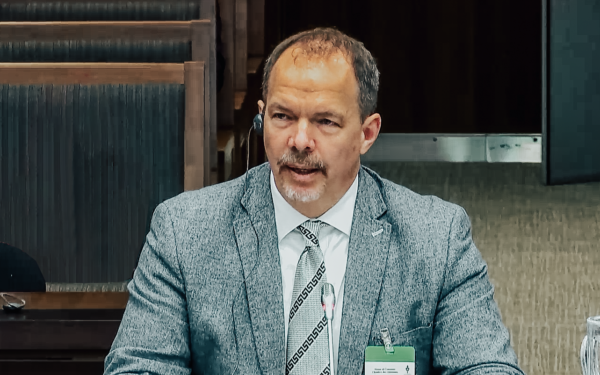A reflection on whether the government can and should shut down the Internet if needed.
Over the past few weeks, there has been a lot of attention focused on the events in Egypt. What we have been witnessing is truly historic for many reasons, but for those of us in the Internet business, one thing stands out.
In an effort to put an end to the massive protests in Cairo and throughout the country, Egypt shut down the entire Internet for its residents. In hindsight, this act did little to keep people from organizing street protests, but it speaks volumes about the power and potential – either real or perceived – of the Internet as a tool for social change.
This act was widely condemned by governments. Interestingly, the U.S. State Department used Twitter to express their concern.
Last week, a DJ on one of the local radio stations in Ottawa was on air questioning whether the same thing could happen here. In other words, does the Canadian federal government have the power and/or the capacity to shut down the Internet in Canada?
It’s a valid question, and the answer is not as simple as one might think.
In Egypt, the government ordered Internet Service Providers (ISPs) to shut down the Internet. For the most part the ISPs complied, withdrawing more than 3,500 Border Gateway Protocol routes (BGPs. BGP routes are integral to the operation of the Internet, allowing networks to exchange information about how packets of data can be best routed. No BGPs, no transfer of data.
This is not likely possible in a country like Canada. To me, it is unfathomable that all ISPs in Canada (there are hundreds, after all) would comply with an order to shut down the Internet. The government could order them to do so, but it is highly unlikely that all of them – including many multi-national corporations – would comply.
And, there’s always going to be workarounds.
If worse comes to worst, access could be as simple as a long distance dial-up connection to an ISP in another country that hasn’t shut down access. This happened in Egypt. Several European Internet service providers (ISPs) began offering free dial-up service to Egyptians. Short of shutting down the entire telephone system, the government had no way of blocking this traffic. Plus, several foreign journalists were able to use satellite phones to connect to the Internet.
The bottom line? Smart folks (and we know there are plenty on the Internet) will always find work around and gain access to the Internet, even in the most authoritarian, oppressive nations.
It’s important to note that there has been a lot of debate in the U.S. about the development of a so-called Internet kill switch. Legislation has been drafted – in fact, it has passed through the Homeland Security Committee – that would give the President the power to ‘kill’ the Internet to protect U.S. interests from cyber-attack. Currently on hold, the bill is incredibly controversial. Interestingly, the bill’s supporters have yet to provide details about how it would actually work, leading many to believe it won’t.
So, technically yes, it is possible for the government to shut the Internet down. Practically, perhaps not. In Canada, there are so many connections to the Internet, trying to shut it down would be practically, politically and economically unlikely.
Do I think that in a democratic country like Canada that we have to be worried about the government shutting the Internet down? Not likely. If the recent ‘uprising’ over the CRTC’s usage-based billing ruling taught us anything, it’s that Canadians don’t take kindly (nor quietly) when someone gets between them and their Internet.
I’ll leave the discussion about whether or not the government has the authority to do so to another time, though I think that would spark some very interesting debate.
Byron Holland (MBA, ICD.D) is the president and CEO of the Canadian Internet Registration Authority (CIRA), the national not-for-profit best known for managing the .CA domain and developing new cybersecurity, DNS, and registry services.
Byron is an expert in internet governance and a seasoned entrepreneur. Under Byron’s leadership, CIRA has become one of the leading ccTLDs in the world, with over 3 million domains under management. Over the past decade, he has represented CIRA internationally and held numerous leadership positions within ICANN. He currently sits on the Board of Directors for TORIX, and is a member of the nominations committee for ARIN. He lives in Ottawa with his wife, two sons, and their Australian shepherd, Marley.
The views expressed in this blog are Byron’s opinions on internet-related issues, and are not necessarily those of the organization.




